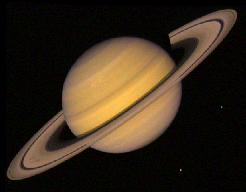-
Who can take Astronomy 161?
Any student enrolled at OSU can take this course, except those with credit for Astronomy H161 or 171. The course is intended for students not majoring in the physical sciences.
-
What are the prerequisites?
Math 075 or 076 or 103, or Math Placement Level R. See below for expectations about your mathematical skills. You can also enroll with permission of the instructor if you have a nonstandard physics or math background.
Please read our description of astronomy courses to see if Astronomy 161 is right for you.
-
What is required?
Before class starts, make sure the email address in your student record actually works. Most of the initial communication between you and the instructor will be done via email. You will then be sent a link name and password to the Astronomy 161 website. This site will guide you through the required material, inform you of times for required quizzes, and provide many other features which will help you get through the course.
For Astronomy 161, you will need to (1) complete six homework assignments, which together make up 40% of your grade; (2) take three in-class examinations, which in total make up 30% of your grade, and (3) take the final exam, which counts for 30% of your final grade. Details of the grading scale and instructions for the exams will be found on the main Astronomy 161 website.
-
What kind of computer do I need?
All you need is a computer which runs a recent version of an internet browser such as Netscape or Internet Explorer and which is capable of displaying documents in Adobe Acrobat format. There is a free plugin for the Adobe Acrobat reader here. If you do not own such a computer, then you can use the OSU Public Computing Sites or the computers in the various libraries.
-
I'm rusty with computers. How can I check that I have the right skills for this course?
You need to be reasonably comfortable using Web browsers. There
is a very helpful guide to understanding the Net called net.TUTOR.
-
Is there a textbook for the course?
Yes. The book is 21st Century Astronomy (2nd edition), by Hester, Burstein, Blumenthal, Greeley, Smith, and Voss. This book is also used for Astronomy 162. The book is required. You can purchase either the full volume, which covers the material for both 161 and 162, or the 1st volume of the split version. The first volume is called 21st Century Astronomy, The Solar System. More details will be sent by email.
Individual reading assignments will be posted on the class web pages corresponding to each lecture. There will also be a reading guide published at the start of the quarter.
-
So what is your approach?
The main theme of our course will be how to survey the Universe. We will concentrate on the most important astronomical methods, so you will understand how we know what we know (not just what we know). There are several parts to this: how to think physically, how to make rough calculations, how to get a feel for the sizes of numbers. I will emphasize these themes repeatedly through the class.
In order to bring these themes to life, we need to revise the traditional lecture format for courses, and instead create a more cooperative and collaborative learning atmosphere. The advent of better communication via the Internet allows me to offload a lot of the factual material to our web site, which you can therefore study on your own. The lectures will then focus on the main conceptual ideas you will need as you read the material in the book or on the web. We will also include problem solving techniques, discussions of the material, and explorations of interesting related topics in other sciences and in society.
-
Sounds like a lot of work!
True. Since a lot of material can be delivered via the web, you have to spend a lot more time in independent study than is traditional for courses like these. You also have to get over being shy about asking questions, either in class or in my office hours. I do think, however, that your efforts will be rewarded - not only with a good grade at the end of the quarter, but also with a real understanding of astronomy (and, I hope, an appreciation of how fun this all is!).
-
What other classes are offered in Astronomy?
There are several other introductory
courses in Astronomy in the traditional lecture format. A longer
description of the courses may be found on the page Which
astronomy course should I take?

